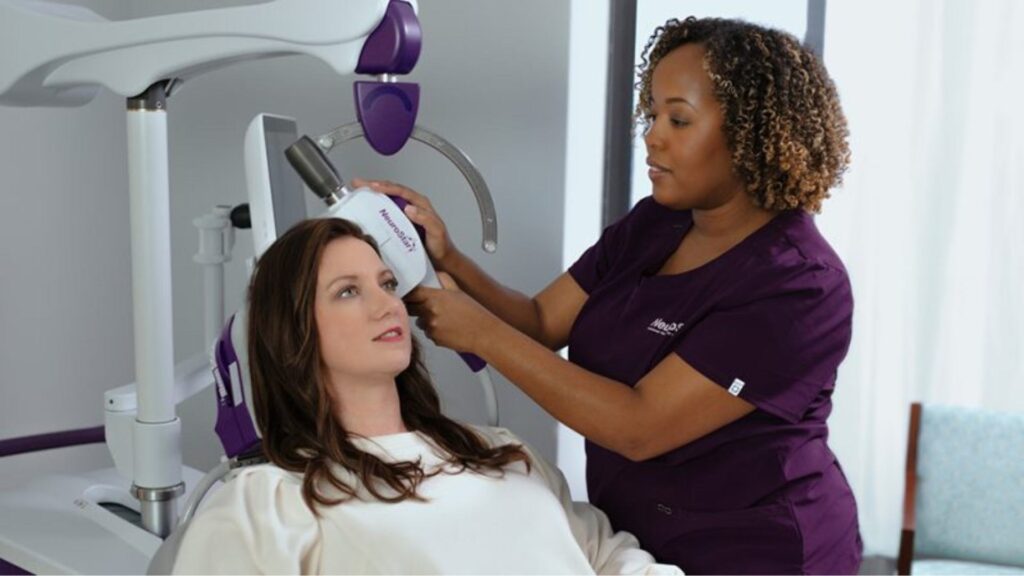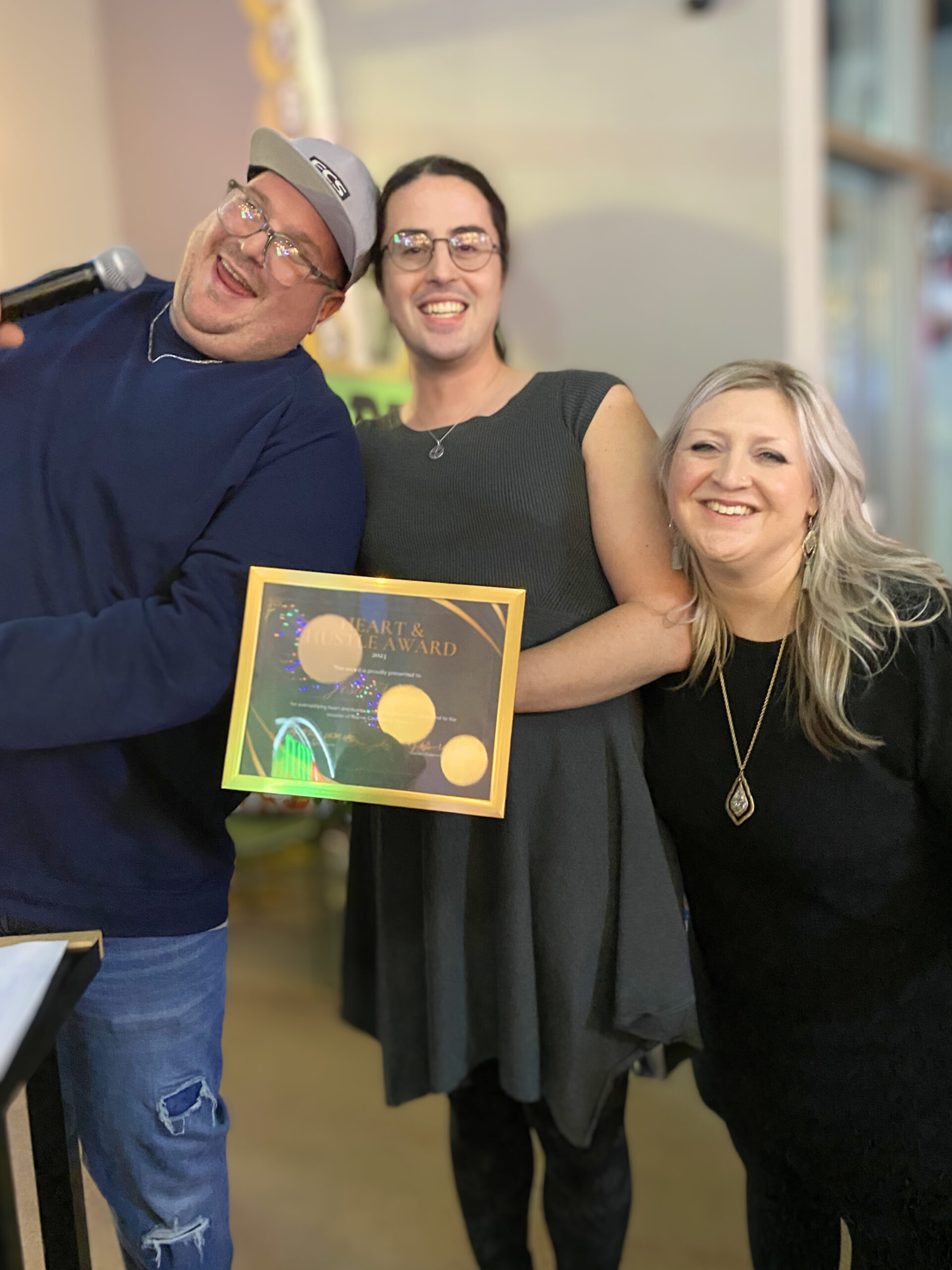Medication Resistant Depression Spokane WA
Are you struggling with depression that doesn't improve with medication?
About 30% of people with major depressive disorder have medication-resistant depression. Here we will explain what medication-resistant depression is and how we can help.

Understanding Medication or Treatment Resistant Depression
Medication-resistant depression is a severe form of depression that does not respond to standard treatments, such as antidepressant medications and talk therapy. People with treatment-resistant depression may experience persistent depression symptoms, including feelings of sadness, hopelessness, and lack of interest in activities, despite trying multiple treatments.

Definition and symptoms
Medication-resistant depression, also known as treatment-resistant depression (TRD), is a form of depression that doesn’t improve after trying at least two different antidepressants.
Common symptoms include persistent sadness, loss of interest in activities, changes in sleep and appetite, fatigue, difficulty concentrating, feelings of worthlessness, and thoughts of death or suicide. These symptoms are severe and interfere with daily life.
People with medication-resistant depression may feel hopeless and frustrated when treatments don’t work. They may experience a lower quality of life and struggle with daily tasks. It’s important to remember that medication-resistant depression is a serious condition that requires specialized care and support.
Causes and risk factors
Several factors can contribute to medication-resistant depression. Genetic predisposition, brain chemistry imbalances, and chronic stress may play a role. Certain medical conditions like thyroid disorders, chronic pain, and substance abuse can also increase the risk of developing treatment-resistant depression.
Past trauma, personality disorders, and a lack of social support are additional factors that may make depression harder to treat with standard medications and therapy. It’s important to note that medication-resistant depression is often associated with other mood disorders, highlighting the interconnectedness of these conditions.
Treatment options
Treatment options for medication-resistant depression include a combination of therapy, alternative medications, and brain stimulation techniques, with the primary aim of antidepressant therapy being symptom remission or the reinstatement of euthymia. These approaches aim to alleviate symptoms and improve the patient’s quality of life.
However, finding the right treatment plan can be challenging, as each individual responds differently to various interventions. When initial treatments fail, the consideration of adding a second oral antidepressant from a different class may be necessary to achieve the desired outcome.
Patients may need to try several different medications before finding one that works for them. Non-pharmacological treatments like electroconvulsive therapy (ECT), transcranial magnetic stimulation (TMS), or vagus nerve stimulation (VNS) may also be considered.

Our Approach to Medication Resistant Therapy in Spokane
We tailor each depression treatment plan to your specific needs. Our therapists use proven methods, including dialectical behavioral therapy (DBT), to help you manage medication-resistant depression. DBT is particularly effective in teaching coping skills for managing intense emotions and is used for individuals with ongoing thoughts of suicide or self-harm.
TMS
Individualized treatment plans
Evidence-based methods
Supportive and collaborative environment
Benefits of Therapy for Medication Resistant Depression
Therapy can help people with medication resistant depression by working on the root causes, teaching new ways to cope, and improving overall well-being.

Medication-resistant depression frequently originates from deep-rooted emotional scars, negative thinking patterns, and unresolved trauma. Therapy offers a safe environment to delve into these underlying problems and cultivate healthier coping strategies.
Skilled therapists employ evidence-based methods such as cognitive-behavioral therapy (CBT) and eye movement desensitization and reprocessing (EMDR) to assist clients in recognizing and confronting distorted beliefs, working through painful memories, and developing emotional resilience.
By tackling the fundamental causes of depression, therapy can result in enduring enhancements in mood, self-worth, and overall well-being. Personalized treatment plans may include mindfulness exercises, stress management techniques, and lifestyle changes to foster holistic healing.
With the appropriate support and guidance, it’s achievable to break free from the hold of medication-resistant depression and rediscover a sense of meaning and happiness in life.
Coping strategies are vital for managing medication-resistant depression. Therapists work closely with clients to identify and develop personalized coping mechanisms. These may include mindfulness practices, like meditation and deep breathing exercises, which can help reduce stress and promote a sense of calm.
Therapists also teach problem-solving skills and encourage clients to engage in activities they enjoy, such as hobbies or spending time with loved ones, to boost their mood and increase feelings of self-worth.
In addition to these techniques, therapists help clients build a support network of friends, family, and mental health professionals. Having a strong support system can provide a sense of connection and reduce feelings of isolation that are often associated with depression.
Therapy for medication-resistant depression can significantly improve quality of life. Personalized treatment plans address the root causes of depression, helping clients develop effective coping strategies and emotional regulation skills.
By working with a therapist, individuals can gain a deeper understanding of their thoughts, feelings, and behaviors, leading to increased self-awareness and self-esteem.
Engaging in therapy also fosters a sense of empowerment and control over one’s life. Clients learn to set realistic goals, build stronger relationships, and find meaning and purpose in their daily activities.
Why Choose Revive Counseling?
We have skilled therapists who focus on your long-term well-being. Our clinic uses proven methods to treat your depression in a caring environment.

Experienced therapists
The therapists at this counseling practice have extensive experience in treating depression that hasn’t responded well to medication. They employ evidence-based methods such as cognitive behavioral therapy (CBT) and interpersonal therapy (IPT).
These approaches assist in identifying negative thought patterns and improving relationships. The team also keeps abreast of the most recent research and treatments for medication-resistant depression.
The frustration and hopelessness that come with trying multiple medications without relief are well understood by the therapists. That’s why they adopt a personalized approach, working closely with each client to develop an individualized treatment plan.
Personalized and holistic approach

We recognize that each person’s experience with medication-resistant depression is unique. That’s why our therapists take a personalized and holistic approach to treatment. We develop individualized therapy plans that address the specific needs, goals, and challenges of each client.
Our approach considers the whole person – mind, body, and spirit – and incorporates evidence-based techniques such as cognitive-behavioral therapy (CBT), mindfulness practices, and lifestyle modifications.
We aim to help clients develop coping strategies, improve self-care, and build resilience to manage their depression effectively.
Our therapists work closely with clients to identify and address the underlying factors contributing to their medication-resistant depression. We explore personal history, relationships, and environmental influences that may be impacting mental health.
Focus on long-term well-being
The therapists at this counseling practice focus on promoting long-term well-being for clients struggling with medication-resistant depression. They understand that finding relief from severe depression can be a challenging journey.
That’s why their individualized treatment plans go beyond just managing symptoms in the short term. Their goal is to help clients develop coping strategies, address underlying issues, and make lasting positive changes in their lives.
Through evidence-based methods like cognitive-behavioral therapy (CBT) and mindfulness practices, they work collaboratively with clients to build resilience and foster a sense of empowerment.

Contact Us Today
At Revive Counseling, we’re here to help you find hope and healing on your journey to overcome medication-resistant depression. Our compassionate therapists are ready to work with you to develop a personalized treatment plan that addresses your unique needs and challenges.
FAQs
Treatment-resistant depression (TRD) is a type of major depression that doesn’t improve after trying at least two different antidepressants. It’s also known as refractory depression.
Common treatments for TRD include newer antidepressants like esketamine (Spravato), atypical antipsychotics like aripiprazole (Abilify), and older classes of drugs like MAOIs and TCAs. Non-drug options include repetitive transcranial magnetic stimulation (rTMS), electroconvulsive therapy (ECT), and psychotherapy.
Yes, TRD can occur alongside other psychiatric disorders like bipolar disorder, post-traumatic stress disorder (PTSD), and substance use disorders. It’s important to get an accurate diagnosis to guide treatment.
Several new treatments are being researched in clinical trials, including the use of psychedelic compounds like psilocybin (found in “magic mushrooms”), deep brain stimulation, and theta burst stimulation. However, more studies are needed to establish their safety and efficacy.
Neurotransmitters like serotonin, norepinephrine, and dopamine are thought to be involved in regulating mood. Many antidepressants work by increasing the levels of these chemicals in the brain. However, in TRD, these medications may not be effective, suggesting other mechanisms are at play.
It’s important to work with your healthcare providers to manage both your mental and physical health. Some medical conditions, like hypothyroidism, can contribute to depressive symptoms. Maintaining a healthy lifestyle through regular exercise, a balanced diet, and good sleep habits can also help improve overall well-being. Be sure to discuss any suicidal thoughts or impulses with your doctor.
